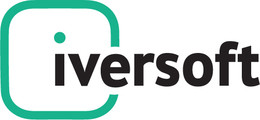Indigenous Protocol and Relations Specialist
The University is committed to employment equity, diversity, and inclusion, and are proud to support career opportunities for Indigenous Peoples to reflect the community we serve. We continue to grow our partnerships with Indigenous communities across the province, nationally, and internationally and value the unique perspective that Indigenous employees provide to strengthen these relationships. Only Indigenous candidates will be considered for this position. Verification of Indigenous Membership/Citizenship at the University of Saskatchewan is led and determined by the deybwewin | taapwaywin | tapwewin: Indigenous Truth policy and Standing Committee in accordance with the processes developed to enact the policy. Verification of Indigenous Membership/Citizenship with documentation is a condition of employment and a requirement to hold this position and the successful candidate must maintain those conditions throughout their employment.
Primary Purpose: To support the development and implementation of Indigenous cultural programming, policies, procedures and strategies, and education that advance ohpahotân | oohpaahotaan, Indigenous Strategy for the University of Saskatchewan, the Office of the Vice Dean Indigenous Health (OVDIH) vision and mandate, specifically related to Indigenization, reconciliation, decolonization and manachitowin. An objective of this position is to further strengthen intercultural capacity of the College of Medicine community (system-wide learning) and relationships with the Indigenous community (i.e., leadership, Elders and Traditional Knowledge Keepers etc.), all to support teaching, learning and research across the college.
Nature of Work: Reporting to the Manager of the OVDIH, the Indigenous Protocol and Relations Specialist (IPRS) requires a high level of collaboration and teamwork, relationship-building, and engagement with a variety of stakeholders in order to effectively develop and implement Indigenous cultural and educational initiatives, training and programs that will influence the College of Medicine as a whole. The IPRS is responsible for day-to-day educational and cultural support for leaders, students, faculty and staff in the College of Medicine and for outreach initiatives. The IPRS is also responsible for guiding and supporting protocol, ceremony and traditional inquiries and events.
The position is in a fast-paced, high-volume office with competing demands that require the ability to work under pressure. The IPRS will work at establishing respectful working relations with internal and external stakeholders and partners.
The IPRS will:
Provide guidance to staff, faculty, senior and academic leadership, specifically related to Canadian Indigenous histories, knowledges, cultures and protocols
Ensure respectful engagement with Indigenous Elders, Traditional Knowledge Keepers and Indigenous leaders (e.g., appropriate cultural protocols)
Effectively communicate in a variety of ways (e.g., documentation, awareness training, adult teaching, mentorship, and workshops)
Facilitate the teaching of Indigenous histories (e.g., pre-colonial and colonial education and schooling), contemporary realities (e.g., socioeconomic conditions), and about Indigenous strengths (e.g., philosophies, traditions, practices), contributions to USask and to Canada, etc.
The IPRS will work closely with the OVDIH team on these responsibilities and will support event planning, special projects, and overall intercultural capacity building.
Accountabilities:
Cultural Protocol
Develop an in-depth understanding of the Truth and Reconciliation Calls to Action through recommendations, teachings, and teaching content for the College of Medicine, and subsequently the University of Saskatchewan
Develop and manage guidelines, provide cultural advice and awareness to the campus community on Indigenous cultural protocols, traditions, practices and histories
Provide cultural advice and update documents associated with Indigenous cultures and protocols
Provide cultural assistance to ceremonial Elders upon request and when appropriate
Coordinate, assist and advise on the cultural protocol in the planning of large college events
Work alongside, as a respectful team, with other University cultural coordinators/advisors.
Education and Awareness
Provide cultural advice, awareness, guidance and stories related to the Traditional Territorial Acknowledgements
Develop and deliver consistent cultural awareness training and workshops for across the College of Medicine
Increase intercultural capacity building across the college through proactive education and act as a liase in educational history and cultural teaching
Provide guidance and assistance in institutional routine and special event planning with respect to Indigenous education, inclusion and cultural protocols, to the College of Medicine
Ensure university policies procedures and practices are respectful of cultural protocols and promote respective engagement of Traditional Knowledge Keepers and, when required, participate in institutional policy development and/or reviews to ensure Indigenous inclusion
Develop a reporting mechanism to identify and track cultural awareness programs and courses that contribute to intercultural capacity building across the campus community
Work collaboratively with the Senior Lead Indigenous Programming and Initiatives, to develop and implement programs that strive to increase the admission, retention and completion rates of qualified Indigenous students in the College of Medicine.
Traditional Knowledge Keeper and Elder Support
Build and maintain strong, respectful relationships with Indigenous Elders/Traditional Knowledge Keepers
Assist with leading, coordinating, and documenting Elders’ Traditional Knowledge Keeper’s dialogues
Engage Traditional Knowledge Keepers in teaching, learning and research
Manage and vet requests for Elders, Traditional Knowledge Keepers and/or cultural experts to participate in College of Medicine events, courses, or dialogues
Provide cultural advice to faculty and staff looking to engage Elders and Traditional Knowledge Keeper’s in teaching, learning and research
Organize, coordinate and manage protocol and gifting for Elders and Traditional Knowledge Keepers in relation to events associated with the Indigenous strategy, in accordance with cultural protocol guidelines and in compliance with College of Medicine and University’s procedures and practices.
Strategic Communications and Relationships
Work with the team of the Office of the Vice Dean, Indigenous Health to enhance partnerships with Indigenous communities and organizations to enhance outreach initiatives and programs within and external to the university
Work closely with the College of Medicine’s communication team on appropriate use of communication materials and style guides associated with the Vice Dean, Indigenous Health strategy
Assist with and contribute to annual reports and evaluation tools related to the Indigenous Strategy and Annual Reports
Represent the Office of the Vice Dean, Indigenous Health on relevant internal and external committees, as appointed
Other responsibilities as assigned by the Manager or Vice Dean, Indigenous Health.
Education: Bachelor’s degree in a related field will be considered, with related work experience; a Master’s degree is preferred Minimum of three years related work experience, preferably in direct association with Indigenous education, programs, and/or communities.
Experience: Familiarity and knowledge of regional Indigenous cultural protocols and ceremonial observances is essential. Proven experience in the coordination of Indigenous educational and cultural events. Experience in coordination of First Nations and/or Métis, Inuit traditions and ceremonies including specialized knowledge of Canadian Indigenous histories, schooling experiences, cultural protocols. Familiarity with academic ceremonies, traditions and protocols would be considered an asset. Experience with developing and teaching programs and an asset.
Experience in working with diverse groups of organizations and peoples, particularly students, Indigenous communities and partners. Proven understanding of university administrative structures and Indigenous governance systems and educational support programs. Knowledge and enthusiasm for adult teaching, outreach and engagement of higher education with communities. Knowledge of the University of Saskatchewan, the province and Indigenous residents therein are essential. Must hold and maintain a valid Saskatchewan driver's license and an acceptable driving record.
Skills:
Results driven with a high level of energy, enthusiasm and dedication; demonstrated exceptional relationship building skills
Proven integrity, ethical diplomacy, and tact
Possess positive, well-established relationships with Indigenous communities, leaders, and cultural knowledge keepers
Effective organizational, analytical, and problem-solving skills, with keen attention to detail
Ability to manage and prioritize several projects simultaneously with the proven ability to meet deadlines and take on challenges
Effective written and verbal communication skills along with a strong customer service orientation
Resourcefulness and affinity for strong and effective partnerships
Proficiency with word processing, spreadsheets and databases, including a strong working knowledge of Microsoft Office Professional (Word, Excel, Outlook and PowerPoint)
Fluency with an Indigenous language would be considered an asset
Demonstrated excellence in facilitation skills (public speaking)
Ability to act decisively and to exercise a high degree of diplomacy, confidentiality, initiative and judgment
Experience in teaching Indigenous adult learners and/or high school students
Demonstrated ability to identify funding sources and prepare funding proposals to support new program recommendations.
Strong judgment and initiative, tact and diplomacy in dealing with the frequent interactions with, staff, instructors, university departments and external organizations.
Department: College of Medicine
Status: Term 1 Year with the possibility of extension or becoming permanent
Employment Group: ASPA
Shift: Monday - Friday
Full Time Equivalent (FTE): 0.5
Salary: The salary range, based on 1.0 FTE, is $69,035.00 - 107,868.00 per annum. The starting salary will be commensurate with education and experience.
Salary Family (if applicable): Specialist Professional
Salary Phase/Band: Phase 2
Posted Date: 8/1/2025
Closing Date: 8/14/2025
Number of Openings: 1
Work Location: On Campus
The University is committed to employment equity, diversity, and inclusion, and are proud to support career opportunities for Indigenous peoples to reflect the community we serve. We are dedicated to recruiting individuals who will enrich our work and learning environments. All qualified candidates are encouraged to apply; however, in accordance with Canadian immigration requirements, Canadian citizens and permanent residents will be given priority. We are committed to providing accommodations to those with a disability or medical necessity. If you require an accommodation to participate in the recruitment process, please notify us and we will work together on the accommodation request. We continue to grow our partnerships with Indigenous communities across the province, nationally, and internationally and value the unique perspective that Indigenous employees provide to strengthen these relationships. Verification of Indigenous Membership/Citizenship at the University of Saskatchewan is led and determined by the deybwewin | taapwaywin | tapwewin: Indigenous Truth policy and Standing Committee in accordance with the processes developed to enact the policy. Successful candidates that assert Indigenous membership/citizenship will be asked to complete the verification process of Indigenous membership/citizenship with documentation. The University of Saskatchewan’s main campus is situated on Treaty 6 Territory and the Homeland of the Métis. We pay our respects to the First Nations and Métis ancestors of this place and reaffirm our relationship with one another. Together, we are uplifting Indigenization to a place of prominence at the University of Saskatchewan.



















